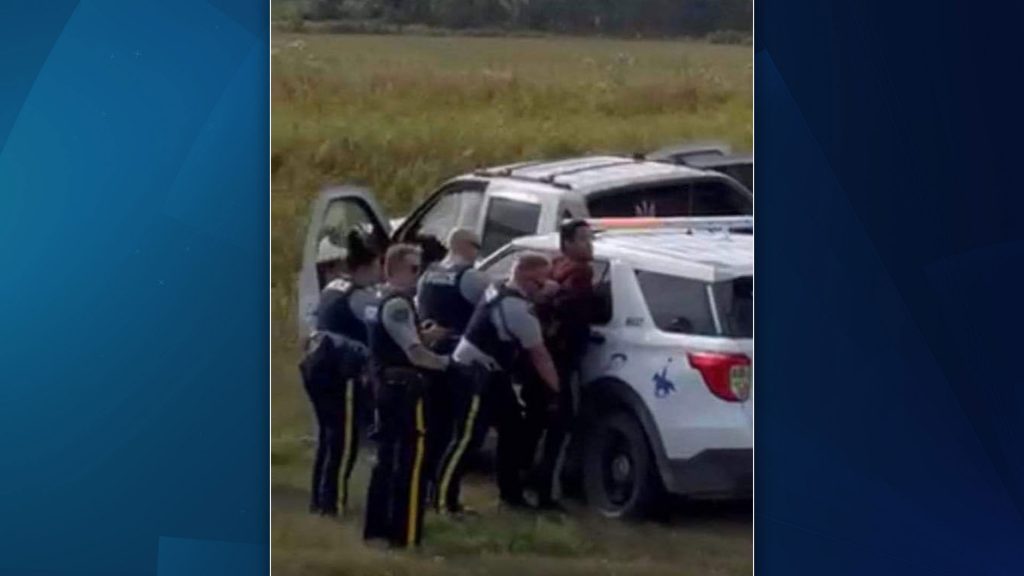
The stabbing rampage on James Smith Cree Nation in Saskatchewan amplified calls for tribal policing. Photo: APTN file
Public Safety Minister Marco Mendicino says he hopes to introduce legislation declaring First Nations policing an essential service in the new year.
In a year-end interview with The Canadian Press, Mendicino said the prospective law is under developmentwith input from Indigenous stakeholders and communities, who he said deserve “the same quality of policing” as non-Indigenous communities.
He described the work as the next step in advancing reconciliation with Indigenous people.
“We need to anchor our work in a relationship that is based on trust, on respect and on a recognition of the inherent right of Indigenous Peoples to self-determine when it comes to public faith,” Mendicino said.
“It is precisely those values that is channelling the work that we are doing on the ground.”
Law ready
In September, Mendicino told reporters he would “work around the clock” to have the law ready to be introduced this fall, but that did not happen.
Prime Minister Justin Trudeau promised to create legislation declaring First Nations policing an essential service in 2020.
His government has also faced pressure, including from Indigenous leaders, to reform the RCMP. The national force often acts as the main service for those living on-reserve because of contract policing agreements that it has in place with all provinces except Quebec and Ontario, which have their own provincial forces.
Tragedies such as the stabbing rampage on James Smith Cree Nation in September, which left 11 dead and 18 others injured, have amplified the calls for more tribal policing.
There are currently 35 First Nations police services in the country, according to Public Safety Canada, the majority of which operate in Ontario and Quebec.
The same route
The First Nations Chiefs of Police Association has said it’s received dozens of calls from other communities looking to go the same route, which it says can be a lengthy, complicated process.
Among the major barriers is a lack of funding.
Since 1991, Ottawa has provided funding for police services on First Nations and in Inuit communities, but an internal evaluation this year found the program suffered from a lack of resources and the underfunding of service agreements.
The National Inquiry into Missing and Murdered Indigenous Women and Girls also flagged concerns around the inadequate funding and its 2019 report included a call to action to “dramatically transform Indigenous policing.”
It said Indigenous police services must be funded to the same level as non-Indigenous ones, and undergo audits by civilian oversight bodies.
Self-administered police
Despite not yet coming out with a new law, Mendicino said his government has made progress on the issue by reaching an agreement with the Alberta government and province’s Siksika Nation that would allow the community to transition away from relying on the RCMP and instead create a self-administered police service.
Mendicino pointed out that Ottawa also signed an agreement with the Saskatchewan government and the Prince Albert Grand Council, which includes James Smith Cree Nation, to explore new ways to deliver public safety.
“That’s what moving forward with reconciliation looks like,” he said. “There’s still a long way to go.”









